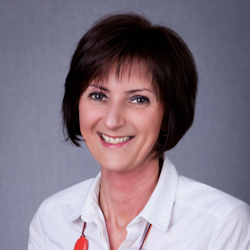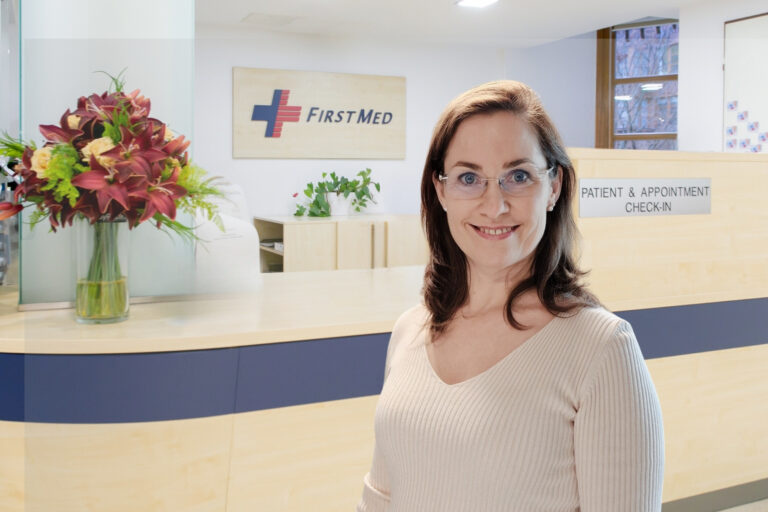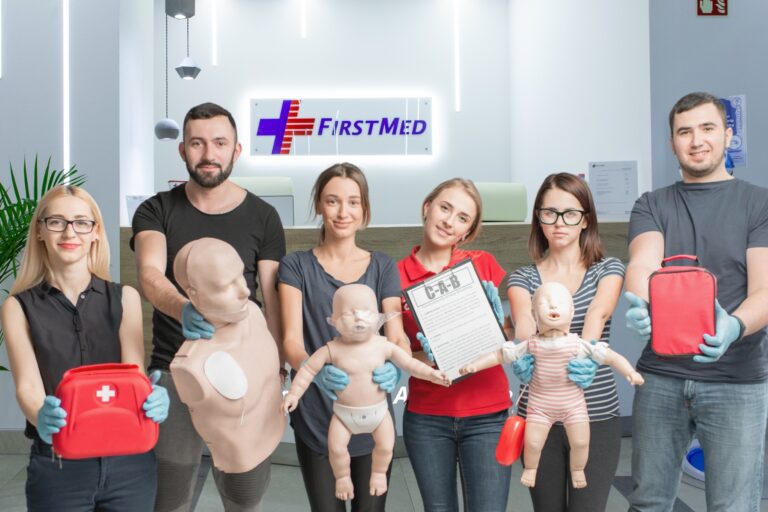Why did you become a doctor?
It would be nice to say that I became a doctor because of my childhood, but it wouldn’t be true. None of my family members were doctors – I never had a personal experience. What I do remember is that I always wanted to save the sick, injured, or abandoned animal’s life, and I always took them home. Because of my physique, it would’ve been very difficult for me to be a veterinarian. So I decided to give medical school a shot. From the moment I decided, I knew I’d never give up. I didn’t get in on my first or second try, but I kept going and I ended up succeeding on my third try. In the meantime, I was working and studying in London to become a physiotherapist. Although university was hard I never felt like giving up and never wanted to choose a different profession.
Why did you choose your specialty?

As a woman, I was not interested in becoming a surgeon. I wanted to choose a specialty that could give me a base in the future if I ever wanted to specialize in some part of medicine. This is how I’ve chosen internal medicine. I was working at an internal medicine and cardiology department for years. Later on, I picked a specialty – family practice – that can be a good choice for women who want to spend time with their families as well. At FirstMed I can combine the two – internal medicine and family practice – because sometimes it is more family practice, and sometimes it is more internal medicine.
What are the good and bad parts of being a doctor?
The good parts are that you can easily help people – many times just by listening to them and calming them down. When you can help them in ways that you know they need. Sometimes you really can save their lives. You can give real solutions. You have a general knowledge of medicine – you know which symptoms to look out for and you know when it is reasonable to worry and you know how to help them. It gives you confidence. You know where to start with the tests and with the treatment plan. It is always wonderful when you can help – in any way, shape, or form.
The bad ones are when you can’t help. When you see that your patient is suffering physically or mentally. When you can’t find a way to ease their pain. When you see them crying. When children are suffering. Or when you see someone die. When you see families losing their loved ones. When you can’t give hope because there is no cure.
What makes FirstMed different from other places where you have practiced medicine?
FirstMed is like a small island in Budapest where foreigners living here can find English-speaking doctors, professional care, stability, various specialties, and commitment. Sometimes it is more than “just” a medical facility – they need general help and guidance on how to find the best solution for their medical and non-medical problems. Usually, you know the whole family, you can accompany them from birth and you may know tiny pieces from their private lives which are sometimes so different from mine. You may get close to cultures from all over the world, you have a possibility to see the colors of the world.
What do you like most about practicing medicine at FirstMed?
The diversity, stability, and the possibilities of how we can help. Because we have so many specialties, many partner companies, in most cases we can avoid using the public healthcare system which would be scary for foreigners due to the language barrier and accommodation. We are always here, we have an on-call system, so we can find a solution on any day of the year and at any time of the day. We can see rare diseases as our patients are traveling a lot and we have to try to solve problems with different methods regarding their cultural, religious, and social diversity. I love seeing their kids, knowing them more than ‘just” a doctor. It is always nice to help them with general questions and concerns as well.
What do you consider when looking for a doctor for yourself or a family member?
Personality is really important to me. Whether they are good listeners, can understand the problem and try to find the root of the problem, and they have to be very thorough in their examination. Sometimes general perspectives and views are more important than detailed specifications. Of course, medical practice, and experiences are also important, but simple knowledge without the capability of giving mental and psychical relief is not enough. Trust and availability are also very important. The patient shouldn’t feel alone with their problems, fears, and difficulties.
Besides specific medical advice that you give to individual patients is there anything that you would recommend for people to stay as healthy as possible?
As long as you have plans, goals, and loved ones, you should never give up. Friends and family, and a hobby, can keep you active and give you a drive to live and fight even if you have medical problems.
Thank you Dr. Hegyi for the interview. To make an appointment please call +36 1 224 9090.




